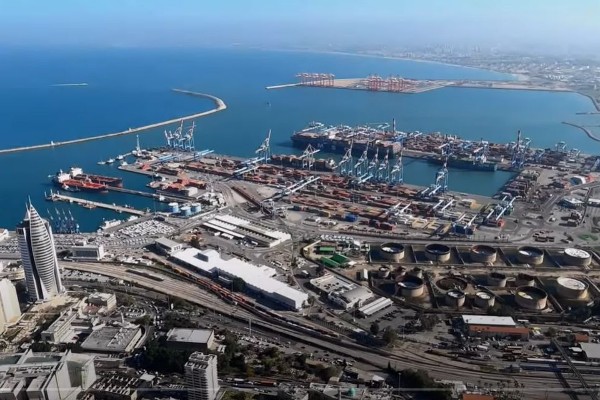Yilport’s owner also has a significant stake in a company that operates the ports of Beirut and Latakia.
By Pesach Benson, United With Israel
A Turkish company was disqualified from participating in an Israeli public tender to operate the Haifa Port over suspected links to Hezbollah according to Hebrew media reports.
The old Haifa Port has been undergoing renovations and is in the process of being privatized. Among the Israeli and foreign companies bidding to operate the old port is Turkey’s Yilport, which operates 29 ports in Turkey, Europe and South America.
Its owner, Robert Yildirim, is a close friend of Turkish President Recep Tayyip Erdogan, which for many Israelis, would be reason enough to block Yilport’s bid. The Yilport consortium bidding for the Haifa tender also includes Israeli and U.S. companies.
But Hebrew reports say the consortium was disqualified because of Yildirim’s close ties to the CMA CGM Group, which is the world’s third largest shipping company. Yildrim holds a 24 percent stake in the Marseilles-based company, which is owned by Lebanese businessman Jacques Saade.
CMA CGM operates the Port of Beirut, where a Hezbollah stockpile of ammonia nitrate exploded in 2020, which killed 218 people and flattened large swathes of the city. According to Al-Monitor, Lebanon’s Hezbollah-affiliated Minister of Public Works and Transportation provided the permits for CMA CGN to operate the Beirut port.
CMA CGN also operates Syria’s Latakia port, a known conduit for Iran-Hezbollah weapons smuggling. The port was hit by a pair of Israeli air strikes in December, which strained Israeli ties with Russia. A heavy fire that broke out during the Dec. 28 strike suggested Hezbollah had heavy weapons or highly dangerous cargo stored at the port, which endangered Russian personnel there.
China Operates Haifa’s New Port
Haifa’s separate new port, inaugurated in September 2021, has also been a source of a different set of security concerns. The $1.7 billion terminal is operated China’s state-owned Shanghai International Port Group, a point of friction in Israeli-U.S. relations.
Washington and Israeli critics say SIPG’s 25-year contract to operate the port will enable Chinese espionage, and risks the possibility of the operators deliberately disrupting traffic during an emergency.
Officials in both the Biden and Trump administrations have also voiced concern over what they call China’s “debt-trap diplomacy in which foreign debts owed to Beijing become a source of Chinese leverage.
China’s role in the Haifa port is part of Beijing’s “Belt and Road Initiative” to expand its political and economic influence through international infrastructure projects. More than 100 countries have signed memorandums of understanding with China involving projects such roads, brides, skyscrapers, airports, dams, power stations, tunnels and ports.
Israel’s National Bureau of Statistics reported in January that China overtook the U.S. as the Jewish state’s largest source of imports in 2021.
